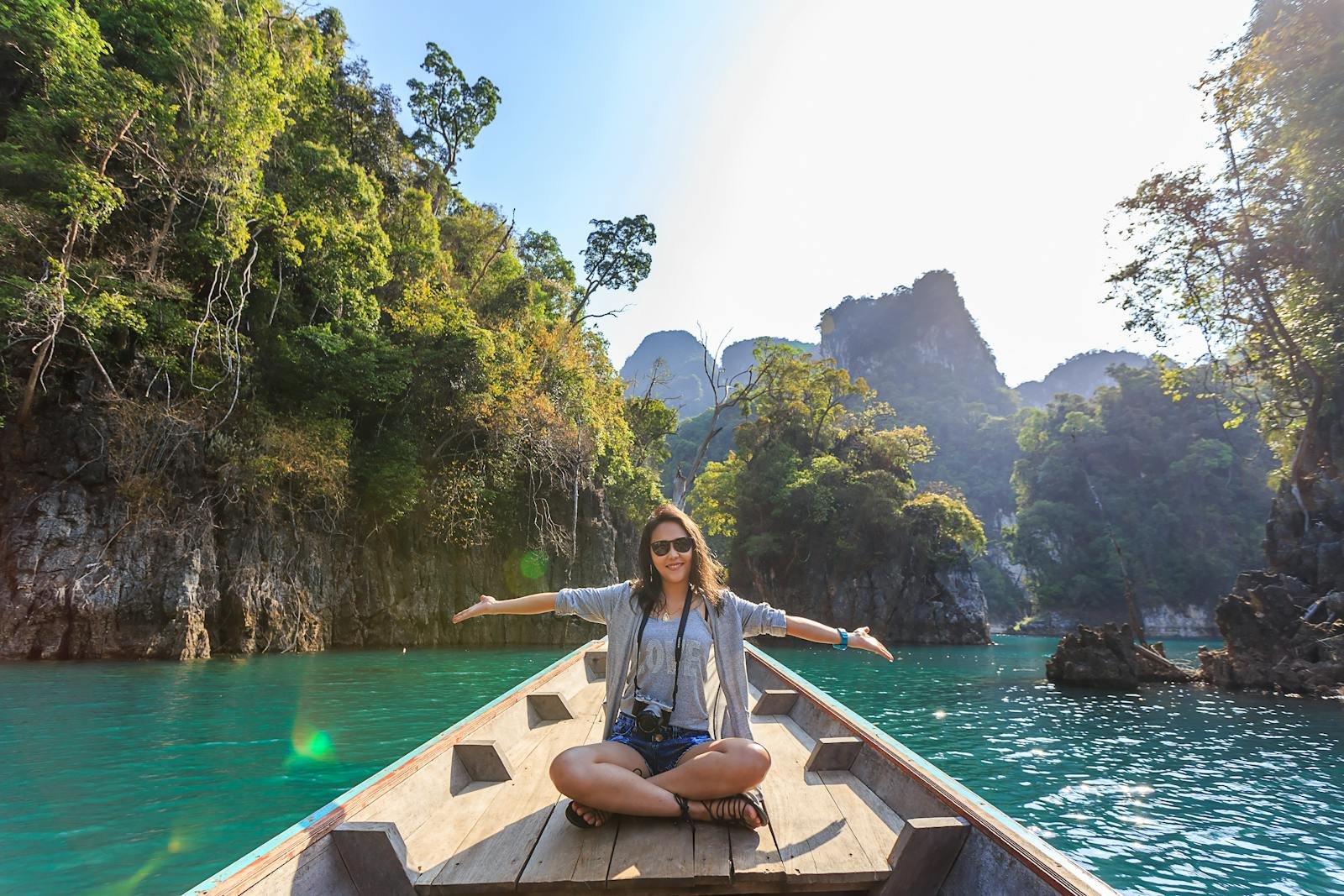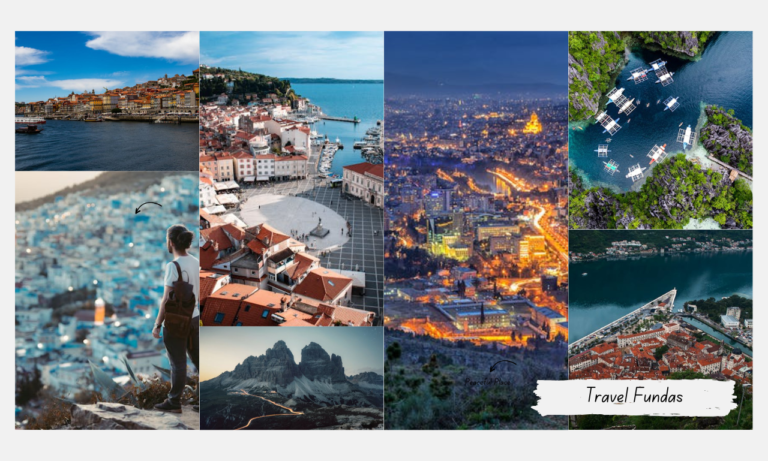Planning your first foreign trip can be both exciting and challenging. The process can feel overwhelming and it’s easy to feel lost with so many details to consider, like choosing a destination, managing your budget, and packing effectively.
This guide is here to make trip planning easier and more manageable. We’ll walk you through each crucial step with clear, actionable advice, ensuring that every aspect of your journey is well thought out. You’ll learn how to set meaningful travel goals that align with your interests and preferences, choose the ideal destination that fits your desires, and create a budget that works for you without compromising on the experience.
By the end of this guide, you’ll have all the tools and knowledge you need to plan your perfect first trip confidently. Let’s get started on planning your perfect first international trip.
Step 1: Set Your Travel Goals
Understanding Your Purpose
Setting clear travel goals is the first step in planning a successful trip. Begin by defining why you want to travel. Your purpose will influence many aspects of your trip.
- Relaxation: If your primary goal is to relax and take a break, look for destinations known for their peaceful environments. Consider places like beach resorts, mountain retreats, or spa destinations. Research destinations that offer calm surroundings, such countryside locations.
- Adventure: For those seeking adventure, focus on destinations that offer thrilling activities. Look for places known for outdoor adventures such as national parks, mountain ranges, or coastal regions. Research local tour operators or adventure companies that provide guided experiences or equipment rentals. Make sure the destination offers the level of adventure you’re comfortable with. Find adventure tours.
- Cultural Exploration: If cultural immersion is your goal, choose destinations rich in history, art, and traditions. Research cities or regions known for their historical landmarks, museums, festivals, and local cuisine. Look for cultural tours or local experiences that can deepen your understanding of the region.
Choosing the Right Experience
Aligning your travel goals with the type of trip ensures a more fulfilling experience.
- Solo Travel: Solo travel provides an opportunity for personal growth and self-discovery. Choose destinations that are known for being safe and welcoming to solo travelers. Research local attractions, dining options, and accommodation that cater to solo travelers. Consider destinations with a strong solo traveler community or those known for their ease of navigation.
- Travel with Family: Traveling with family requires finding destinations and accommodations that cater to all ages. Look for places with family-friendly activities, such as theme parks, family resorts, or destinations with various attractions for children and adults. Research accommodations with amenities like kid-friendly pools, family suites, and on-site activities. Ensure there are options for dining and entertainment that everyone in the family can enjoy.
Step 2: Choose Your Destination
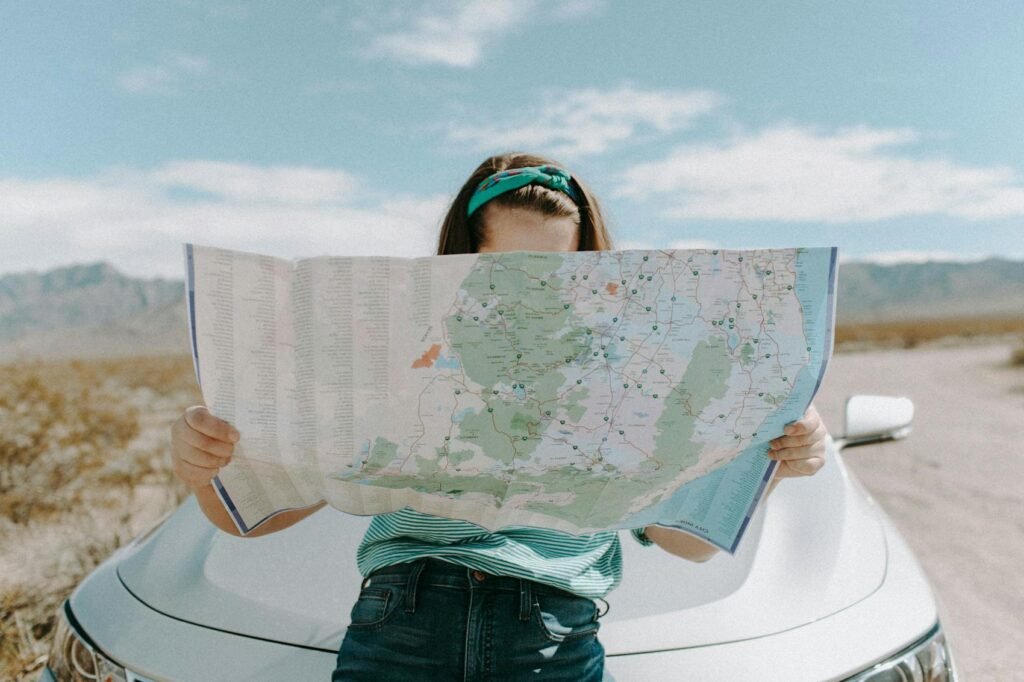
Research Potential Destinations
Choosing the right destination is crucial to a successful trip. Start by researching destinations that align with your travel goals and budget.
- Define Your Criteria: List what you want in a destination, such as natural beauty, cultural experiences, or specific activities. Use this list to filter potential destinations.
- Budget Considerations: Factor in your budget for flights, accommodation, and daily expenses. Look for destinations that offer good value for your money.
- Travel Inspiration: Explore travel blogs, social media, and travel forums for ideas and personal experiences from other travelers. Websites like TripAdvisor and Lonely Planet can provide insights and reviews.
Considerations
When choosing a destination, consider the following factors to ensure it meets your needs:
- Weather: Research the climate of potential destinations during your planned travel dates. Look for seasonal weather patterns and temperature ranges to avoid extreme conditions.
- Culture: Learn about the local culture, customs, and etiquette. Understanding cultural norms will help you respect local traditions and enhance your travel experience.
- Safety: Check travel advisories and safety reports for your chosen destination. Local government travel advisories offer updated safety information.
- Travel Restrictions: Be aware of any visa requirements, travel restrictions, or health advisories. This includes checking for necessary vaccinations, entry requirements etc.
Top 10 Best Countries for Your first international trip
Tips for Beginners
To streamline your destination research, use these tools and resources:
- Travel Websites and Apps: Utilize platforms like Expedia, and Kayak for destination information, flight deals, and accommodation options.
- Travel Guides: Invest in travel guidebooks or e-books that offer in-depth information on various destinations. These guides often provide practical tips and recommendations.
- Travel Forums: Participate in forums like Reddit’s r/travel for firsthand advice from experienced travelers.
- Social Media: Follow travel influencers and hashtags on Instagram, Pinterest, and TikTok to get visual inspiration and reviews from fellow travelers.
Step 3: Book Your Flights and Accommodations
Flight Booking Tips
Finding the best deals on flights requires a bit of strategy and research. Here are some tips to help you secure the best rates:
- Use Comparison Websites: Websites like Skyscanner, Google Flights, and Kayak compare prices across multiple airlines and booking platforms. They can help you find the best deals and track price changes.
- Be Flexible with Dates: Flight prices can vary significantly depending on the time of year, day of the week, and time of day. Use flexible date search options to find cheaper flights.
- Set Fare Alerts: Sign up for fare alerts on sites like Hopper or Airfarewatchdog. These alerts notify you when prices drop for your desired route.
- Book in Advance: Booking your flights several months ahead can often lead to lower prices. Last-minute bookings tend to be more expensive, especially for popular destinations.
Accommodation Options
Selecting the right accommodation can enhance your travel experience. Consider these options and tips:
- Hotels: Traditional hotels offer a range of amenities and services. Use sites like Booking.com or Hotels.com to compare options and read reviews.
- Hostels: Ideal for budget travelers and those seeking a social atmosphere. Platforms like Hostelworld provide reviews and booking options for hostels worldwide.
- Airbnb: Offers unique lodging options such as private homes, apartments, and even treehouses. Check Airbnb for various accommodation styles and experiences.
- Vacation Rentals: Sites like Vrbo offer vacation rentals that can be ideal for families or groups needing more space and privacy.
Step 4: Plan Your Itinerary
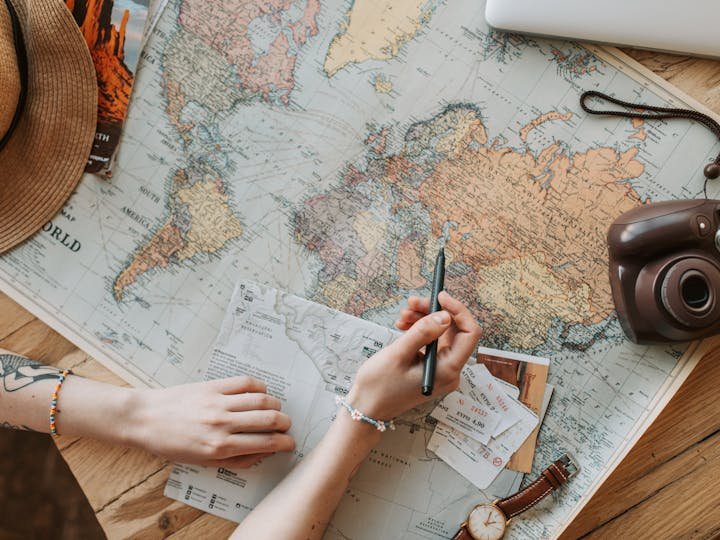
Create a Daily Plan
Planning your daily activities helps you make the most of your trip. A well-structured itinerary balances sightseeing, activities, and relaxation.
- Daily Schedule: Start by listing key activities and attractions you want to visit each day. Use tools like Google Maps to estimate travel times and plan your route efficiently.
- Include Downtime: Ensure your schedule includes time for rest and unplanned exploration. Overloading your days with activities can lead to exhaustion and diminish your overall experience.
Must-See Attractions
Prioritize attractions based on your interests and travel goals.
- Research Popular Sites: Look up top attractions and landmarks in your destination. Websites like TripAdvisor and Lonely Planet offer comprehensive lists and reviews of must-see sights.
- Local Recommendations: Seek recommendations from locals or recent travelers. Use forums like Reddit’s r/travel for firsthand advice and suggestions.
- Book in Advance: For popular attractions, book tickets ahead of time to avoid long lines and ensure availability. Check platforms like GetYourGuide or Viator for tickets and tours.
Flexibility
While planning is crucial, flexibility allows you to adapt to unexpected opportunities and changes.
- Leave Gaps: Include free time in your itinerary to explore spontaneously or relax. This approach helps you enjoy unplanned experiences and adjust to any unforeseen circumstances.
- Be Open to Changes: Weather, local events, or personal preferences might alter your plans. Embrace these changes to enhance your travel experience rather than sticking rigidly to your schedule.
Step 5: Get Your Travel Documents in Order
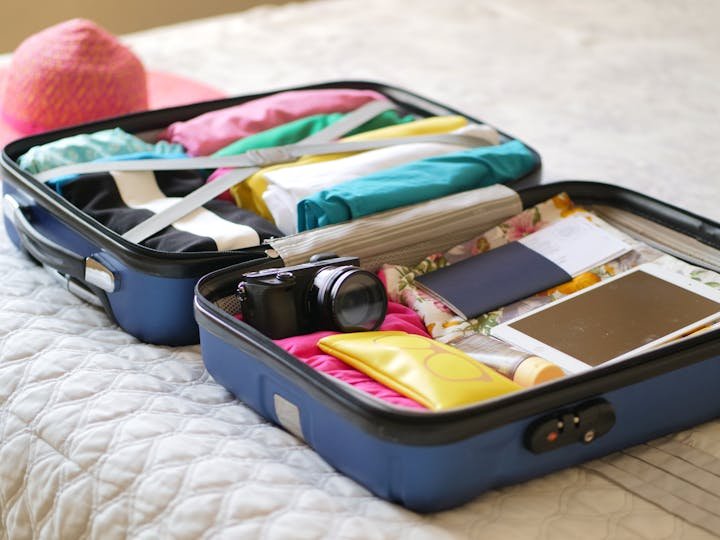
Passport and Visa Requirements
Having the proper travel documents is essential for a smooth trip. Ensure you understand and obtain the necessary documents before you travel.
- Passport: Your passport should be valid for at least six months beyond your planned departure date. Check its expiration date and renew it if necessary. For more information on renewing your passport.
- Visa Requirements: Depending on your destination, you may need a visa to enter the country. Research the visa requirements for your destination on VisaHQ or the official embassy website of the country you’re visiting. Apply for a visa well in advance to account for processing times.
- Entry Requirements: Some countries have additional entry requirements, such as proof of onward travel or vaccination records. Verify these requirements through official government websites or your travel agency.
Travel Insurance
Travel insurance protects you against unexpected events and emergencies during your trip.
- Types of Coverage: Travel insurance can cover medical emergencies, trip cancellations, lost luggage, and more. Review different types of coverage to determine what best suits your needs. Visit sites like TravelInsurance.com or Squaremouth to compare plans.
- Choosing a Plan: Consider factors such as your health, the length of your trip, and the activities you’ll be doing. Ensure the plan covers all necessary aspects, including medical emergencies and trip interruptions.
- Purchase Early: Buy travel insurance as soon as you book your trip to ensure coverage from the start. Check if your credit card offers travel insurance as a benefit, which can sometimes provide additional coverage.
Copies of Important Documents
Keeping backups of your travel documents is crucial in case of loss or theft.
- Digital Copies: Scan or photograph your passport, visa, insurance policy, and any other essential documents. Store these digital copies securely in a cloud service like Google Drive or Dropbox.
- Physical Copies: Carry printed copies of your important documents separately from the originals. Keep these copies in a secure location, such as a hotel safe or a travel pouch. This ensures you have a backup if your originals are lost or stolen.
Step 6: Health and Safety Preparations
Vaccinations and Health Precautions
Preparing for health and safety is crucial to ensure a smooth and enjoyable trip.
- Vaccinations: Research any required or recommended vaccinations for your destination. Some countries require proof of certain vaccinations for entry. Use resources like the Centers for Disease Control and Prevention (CDC) or World Health Organization (WHO) to find up-to-date vaccination requirements and health advisories.
- Health Precautions: Depending on your destination, you may need to take additional health precautions. This could include carrying insect repellent to prevent mosquito-borne diseases, using water purification methods, or avoiding certain types of food. Check health guidelines specific to your destination to ensure you are prepared.
Safety Tips
Understanding local customs and safety guidelines can help you stay safe and respectful during your trip.
- Local Customs: Familiarize yourself with local customs, traditions, and etiquette. This includes dress codes, behavior expectations, and tipping practices. Websites like Culture Trip or travel guides can provide insights into local cultural norms.
- Safety Guidelines: Stay informed about safety concerns in your destination. Check travel advisories from government websites. Follow guidelines for safe behavior, such as avoiding risky areas or keeping valuables secure.
- Travel Alerts: Subscribe to travel alerts or safety notifications related to your destination. Many government and travel websites offer services to keep you informed about potential risks or emergencies.
Emergency Preparation
Being prepared for emergencies can help you handle unexpected situations calmly and efficiently.
- Emergency Contacts: Make a list of emergency contacts, including local authorities, your country’s embassy or consulate, and local medical facilities. Keep this list accessible and provide copies to family or friends at home.
- Medical Kit: Pack a basic medical kit with essential supplies such as first-aid items, any prescription medications, and over-the-counter remedies. Ensure you have enough of any medications you need, along with a doctor’s note if required for carrying them internationally.
- Emergency Plan: Know the emergency procedures for your destination, including how to contact local emergency services and evacuation routes if needed. Familiarize yourself with the local emergency numbers and procedures for reporting incidents.
Step 7: Understand Local Culture and Etiquette
Research Culture
Understanding the local culture enhances your travel experience and fosters positive interactions with residents.
- Cultural Norms: Research the cultural norms and traditions of your destination. This includes social customs, dress codes, and religious practices. Websites like Culture Trip and Lonely Planet offer valuable insights into cultural practices and etiquette.
- Local Customs: Learn about any local customs or traditions that may affect your behavior. For instance, some cultures have specific gestures or practices that are considered polite or impolite. Understanding these norms can help you avoid unintentional offenses and show respect to the local people.
Basic Language Skills
Learning a few key phrases in the local language can greatly improve your travel experience.
- Common Phrases: Familiarize yourself with basic greetings, polite expressions, and essential questions. Resources like Duolingo or Memrise offer language learning tools that can help you pick up useful phrases.
- Language Apps: Use language translation apps such as Google Translate to assist with communication. These tools can help bridge language gaps and make interactions smoother.
Respectful Travel
Being a responsible and respectful traveler contributes to a positive experience for both you and the local community.
- Environmental Responsibility: Follow practices that minimize your environmental impact. Avoid littering, use reusable items, and respect natural sites. Refer to Leave No Trace principles for guidance on reducing your environmental footprint.
- Cultural Sensitivity: Show respect for local traditions and customs. Be mindful of your behavior in religious sites and during local festivals. Always ask for permission before taking photos of people or private property.
- Support Local Economy: Patronize local businesses, markets, and restaurants to support the local economy. Engaging with local artisans and vendors helps promote cultural exchange and benefits the community.
Step 8: Final Preparations Before Departure
Double-Check Bookings
Ensuring all your bookings are in order helps avoid last-minute issues.
- Confirm Reservations: Recheck your flight, accommodation, and any activity bookings. Verify dates, times, and details to avoid surprises. Visit the booking platforms or contact providers directly to confirm.
- Review Travel Documents: Ensure you have all necessary documents, including your passport, visa, travel insurance, and copies of important documents. Keep these items in a secure and easily accessible location.
- Check Itinerary: Review your travel itinerary to ensure all activities and plans are in place. Make any final adjustments or confirmations with service providers as needed.
Organize Travel Day
Preparing for your departure day helps ensure a smooth journey.
- Airport Arrival: Arrive at the airport early to allow ample time for check-in, security checks, and boarding. Aim to be at the airport at least 2-3 hours before your flight’s departure time.
- Check-In: Complete online check-in if available to save time at the airport. Verify your boarding pass and travel details before heading to the airport.
- Packing Essentials: Pack your carry-on with essential items such as travel documents, medications, valuables, and a change of clothes. Ensure you have all necessary items for a comfortable flight.
Last-Minute Checklist
Performing final checks before you leave ensures you don’t forget anything important.
- Home Preparation: Arrange for someone to look after your home, if necessary. Ensure that you’ve turned off appliances, locked doors, and secured valuables.
- Emergency Contacts: Leave your contact details and travel itinerary with a trusted friend or family member. This ensures someone knows where you are in case of emergencies.
- Travel Essentials: Double-check that you have your travel essentials, including chargers for electronic devices, any required medications, and a guidebook or maps of your destination.
Common Mistakes to Avoid
Overpacking
Packing too much can create unnecessary stress and inconvenience during your trip.
- Why Less Is More: Bringing fewer items helps you move more freely and reduces the risk of excess baggage fees. Focus on versatile clothing that can be mixed and matched, and remember that you can often buy or wash items as needed.
- Packing Tips: Use a packing list to ensure you have essentials without overloading your bag. Stick to a basic wardrobe and include only what you’ll truly need. Utilize packing cubes or compression bags to save space and stay organized.
Overplanning
While it’s important to have a plan, overplanning can lead to burnout and missed opportunities.
- Importance of Spontaneity: Allow some flexibility in your itinerary for unplanned experiences and relaxation. Over-scheduling can make you feel rushed and prevent you from enjoying the moment.
- Balanced Approach: Create a general outline of your trip with key activities but leave room for adjustments. This approach helps you adapt to changes and explore spontaneously.
Not Researching Enough
Insufficient research can lead to unexpected problems and reduce the enjoyment of your trip.
- Avoiding Unpleasant Surprises: Thoroughly research your destination, including local customs, safety concerns, and transportation options. Use reliable sources like Lonely Planet and TripAdvisor to gather information and read reviews.
- Preparation Tips: Look into local weather conditions, cultural norms, and any potential health risks. Prepare for any specific requirements or restrictions that may affect your travel plans.

